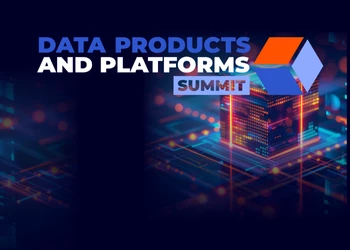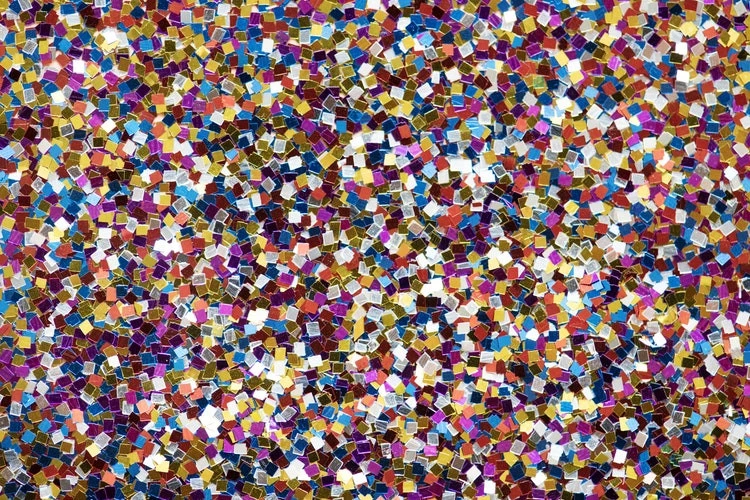How A Connected Toothbrush Can Inform True Society Evolution
Aric Dromi dives into how to rethink our thinking.
Add bookmark
The challenges facing society come from our inability to cope with the changes that technology is imposing on individuals and society.
Every year I follow the Davos parade, mainly enjoying the fact the leaders of the world gather together to solve global problems while making the lives of everyone in Davos miserable. This year, I noticed the list of global threats shared by the delegation:
- Natural disasters
- Mega data hacks
- Cyber attacks
- Climate change
- Failing to define the legislation to tackle the climate challenges
- The crash of the ecological systems
- Water crisis
- Man-made disasters
- Immigration without control or legislation
- Bubbles in the economy

I read this list over and over again yet the only thing I could think is that my toothbrush might be a more significant immediate threat than any of these. I recently traveled to the US and wanted to pick up a new toothbrush. As I travel a lot, I was looking for a mobile, simple to charge toothbrush. I was thrilled when I came across Oral-B connected toothbrush. It had everything. it was electric, it could charge it's battery using my mobile phone charger, the case of the toothbrush could also act as a phone charger, the reviews are great, and it was connected – all for $199. Wow. I immediately placed an order. I also decided to pre-educate myself and search for some videos on the device. It all sounded simple:
- Make sure your toothbrush is charged
- Start the Bluetooth on your phone and connect it to the toothbrush
- Place the phone holder on the mirror in the bathroom (wait, what?)
- Give the app permission to access your camera
- Make sure your face is in the circle of the app
- Brush
I canceled my order and bought an old fashion manual toothbrush for $1.99.
In a world when we strive to connect everything, we often forget the purpose of the things we connect to introduce undesired frictions that become the main selling point of the device. I don't argue with the market value of connected devices, but I do argue that there is a difference between the Internet of Things and things of the Internet. Value should be based on use not on production.
Digital development is not about doing something new but improving things until a point where it will redefine society. It's at that point when the downside of the economy would become irrelevant and would be replaced by a new set of rules that are anchored in the codification of value interactions.

There is an old chart that shows the penetration of new technologies and how long it took the telephone, radio, TV, Internet, Facebook, and Angry Birds to reach to 50 million users. It's not the speed that bothers me, the comparison is not a real one as it's more a question of infrastructure than anything else. What intrigues me most is that we – and by we I mean companies and governments – don't have the tools to understand or distinguish between the above list, nor how any will impact the economy in 35 days.
The challenges we have are not from technology or its speed. The challenge comes from our inability to cope with the changes that technology is imposing on individuals and society. If there is something I learned from history is that whenever we – and by we, I mean all of us – don't understand something, we fight it. For example - Google has been fined nearly $57 million by French regulators for violating Europe’s strict new data-privacy rules. I do not have a great love for Google and their use of my data. But my thought is that the entire GDPR legislative process (like that road to hell), was paved with good intention. It seems that the fine is white noise to society as opposed to a solution to the data privacy issue. Another example - unhappy Arizona residents have been slashing Waymo tires in an attempt to derail self-driving cars. Maybe we need to rethink our societal ground and educational infrastructures before we deploy technologies that obviously require a new set of rules?

When elevators were first introduced, they used to have an operator to regulate the speed and ensure that the device stopped parallel to the desired floor. The operator also offered companionship to the passenger, ensuring their safety and to project trust. After all, an elevator was a sophisticated new piece of technology that needed a "human" mechanism to secure its value. Elevator technology hasn't changed (much) throughout the years. And as they are confined to a physical space, we rarely need humans to help us operate that now trusted technology.
But what about virtual spaces, where things are continually changing fast? Where is the learning curve and assistance for adaptation? Most importantly, where are the interfaces that enable us to regularly repurpose interactions and outcomes? The gap between the potential impacted value and the economy is broader than ever. Legislation, systematic frameworks and infrastructures are so behind that it feels like we are chasing a virus that is constantly mutating and reiterating it's synergies with the host. That is, until the host becomes a secondary product of the ecology of existence.
For the past few years, we've seen a significant shift in human interaction. Our language, communication, knowledge exchange and wellbeing are all being redefined. That redefinition of our spirit is all happening outside of a set of rules and legislation that ware created to capture and monetize our human capital. FB/Instagram, Snap and a few other "communication apps" have taken center stage in designing the definition of values. Our instant gratification needs have been triggered – enabling us to seamlessly send money, share feelings, shop for goods and services. All while more traditional tools like emails are left behind.

Today there are more original streaming shows on TV then basic cable broadcast shows. Yet when the CEO of Netflix was asked about Netflix's biggest threats – he named video game Fortnight and not HBO. He had previously said that his goal was to become HBO before HBO become Netflix. Mission accomplished. On to the next playing field. One of Netflix biggest jumps in usage was during a recent four hour outage of Pornhub. Also noticed was an under-reported impact of the US government shutdown – a massive increase in traffic to adult sites starting with Ponrhub. The old tagline was, "It's not TV, it's HBO." Our current tagline could be, "It's not HBO, it's Netflix." But the ensuing tagline might be, "Be constantly connected, but never with humans."
The new upcoming forms of “gig” and “share,” while a bit confusing, will demand companies and governments to rethink their taxation, pricing, and experiences offered if they want to partake in the future.

The Sharing economy is about the assets. The gig economy is about the occupation. You share physical artifacts, your gig, your time. A person cannot cook and walk the dog at the same time. But a song can be played simultaneously in many places. What happens when artifacts become digital? It's the whole idea behind industry 4.0 - creativity and productivity are not bound to a physical location or physical governance model.
When automation takes center stage in our productivity and efficiency models and algorithmic intelligence extends beyond our cognitive and physical functions, we will need an ecosystem that is capable of catering to all our needs in real-time and multiple locations (at the same time). Look at Amazon prime, Prime now, Uber and Uber Eats (and others) – they deliver experiences in minutes from the click of an app. The app economy eventually will fade away in favor of automation and predictive intelligence, and that will open a whole new world of values of demand.

Einstein said: “Once you can accept the universe as matter expanding into nothing that is something, wearing stripes with plaid comes easy.” Now we see our physical universe expanding into digital dimensions and while we can’t really “touch digital” it enables us to redefine everything we knew about productivity and efficiency.
The experience of “access-ship” vs. “ownership” will be a turning point for the so-far-undisrupted physical goods market. While companies like WeWork and Airbnb made significant money in this area, they needed to rely on an old infrastructure – physical, static locations to grow their businesses. Maybe there is a place for a dynamic market model where the assets themselves can be placed in various locations and can be repurposed to address the growing demand for our personal experiences.

Options abound from autonomous food carts that can open new possibilities for on demand consumption to the delivery of products directly into one's fridge. Possibilities are upon us from new interfaces that rely on body language rather than touch, to the ability of technology not only to respond to human voice but to also initiate a conversation. Facial expression controlled wheelchairs, wiring three brains together to complete tasks in digital spaces, discovering the power on algorithms to personalize the narratives in virtual areas all are here. Editing human DNA to perfect the evolutionary process while shunned, has been attempted. This is not science fiction anymore – this is the world in 2019. We can use technology to give disabled people the ability to walk and talk or to merely escape the misery of loneliness and marry holograms.
The set of rules which we build our world upon, the same set of rules that leads governments to state that "a human should sit behind the steering wheel of an autonomous car" or "let's tax porn to build the wall," is dated all the way back to the Roman Empire. Ignoring the fact that we are technologically obese and live in a world where we know how to operate everything yet we don’t know how anything works is not an option anymore. Maybe it's time to rethink our thinking, to understand that we shouldn't compete against technology in same fields that human blood was shed but compete with technology and pave new roads, ones that enable us to "explore new horizons and boldly go where no one has gone before."

















